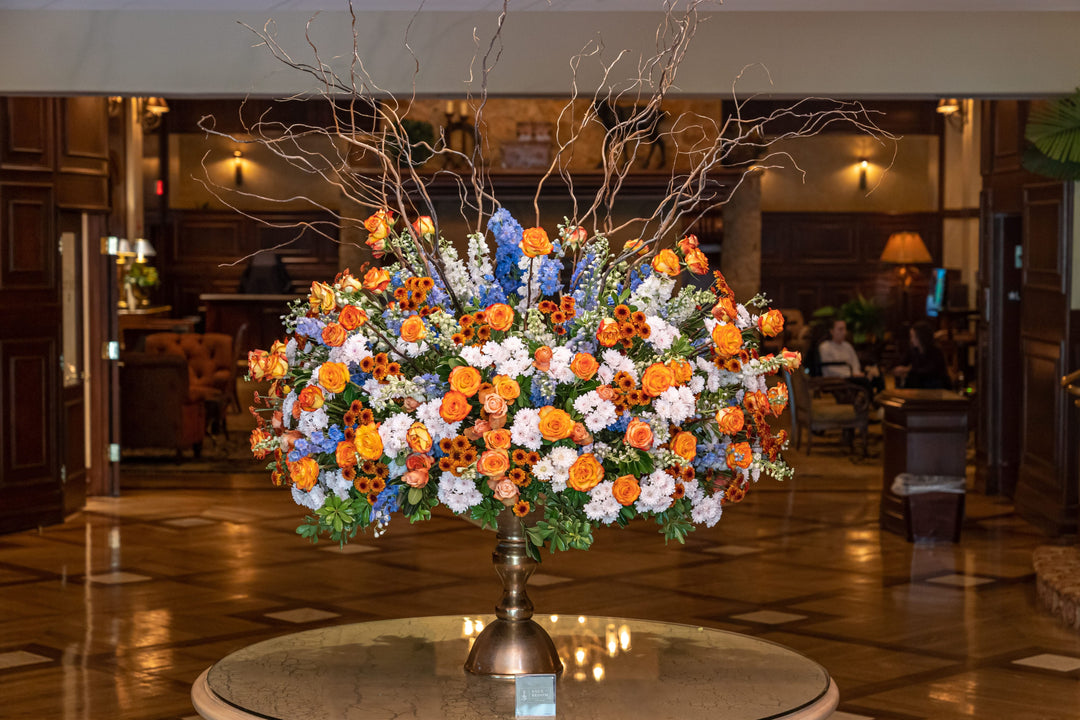
Snake Plants in Houston
Snake plants, also known as Sansevieria, are popular and easy-to-care-for houseplants that thrive in Houston's climate. Here’s a guide on snake plants, covering their types, care tips, occasions for gifting them, their symbolism, and their significance in Houston:
Types of Snake Plants:
-
Sansevieria trifasciata (Mother-in-Law's Tongue):
- Characteristics: Tall, upright leaves with dark green coloration and light green horizontal stripes.
- Care: Thrives in bright, indirect light but tolerates low light conditions. Allow the soil to dry out between waterings to prevent root rot.
-
Sansevieria cylindrica (Cylindrical Snake Plant):
- Characteristics: Cylindrical, upright leaves that grow in a tight, spiral pattern.
- Care: Similar to S. trifasciata, prefers bright, indirect light but can tolerate low light. Water sparingly and allow the soil to dry out between waterings.
-
Sansevieria masoniana (Mason's Congo):
- Characteristics: Large, paddle-shaped leaves with mottled patterns of dark green and light green.
- Care: Requires bright, indirect light to maintain its variegation. Water moderately and allow the soil to dry out partially between waterings.
-
Sansevieria zeylanica (Ceylon Bowstring Hemp):
- Characteristics: Narrow, sword-shaped leaves with dark green coloration and vertical stripes of lighter green.
- Care: Prefers bright, indirect light but can tolerate lower light conditions. Water sparingly, allowing the soil to dry out completely between waterings.
Care of Snake Plants:
- Light: Snake plants prefer indirect light but can tolerate low light conditions. In Houston, they thrive in bright, indirect light indoors or under shade outdoors.
- Watering: Allow the soil to dry out completely between waterings, as snake plants are susceptible to root rot if overwatered. Water less frequently during the winter months.
- Soil: Use a well-draining potting mix or cactus/succulent soil to prevent water retention. Terra cotta pots can help with soil aeration.
- Temperature: Snake plants are adaptable to Houston's warm climate but should be protected from direct sun to avoid leaf burn.
- Propagation: Snake plants can be propagated by dividing mature plants or by leaf cuttings, making them easy to share and expand your collection.
When to Use or Gift Snake Plants:
- Housewarming: Snake plants symbolize resilience and luck, making them a thoughtful gift for new homeowners.
- Office Spaces: They are popular for adding greenery to indoor environments and are known for their air-purifying qualities.
- Get-Well Gifts: Snake plants symbolize healing and vitality, making them a meaningful gift for someone recovering from illness or surgery.
- Low-Light Environments: Ideal for spaces with minimal natural light, such as apartments or rooms with north-facing windows.
Symbolism and Meaning:
- Resilience: Snake plants symbolize resilience and endurance, thriving under various conditions and requiring minimal care.
- Luck: In some cultures, snake plants are believed to bring good luck and prosperity to households.
- Air Purification: They are known for their ability to purify indoor air by removing toxins such as formaldehyde and benzene.
Snake Plants in Houston:
- Adaptability: Snake plants are well-suited to Houston's climate, thriving as indoor plants or in shaded outdoor areas.
- Indoor Decor: They are popular for adding a touch of greenery and elegance to homes, offices, and commercial spaces throughout Houston.
- Low Maintenance: Snake plants are favored for their low maintenance requirements and ability to thrive in urban environments.
- Cultural Significance: Appreciated for their symbolism and air-purifying qualities, snake plants contribute to Houston's growing interest in sustainable and indoor gardening practices.
In Houston, snake plants are valued not only for their aesthetic appeal and low maintenance but also for their symbolic meanings and health benefits, making them a versatile and popular choice among plant enthusiasts and decorators alike.






